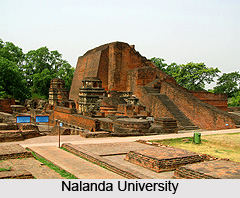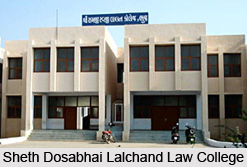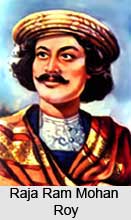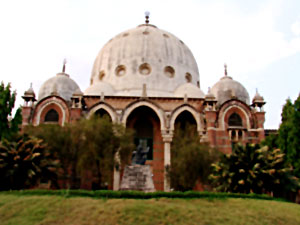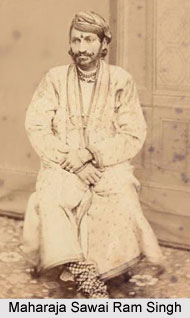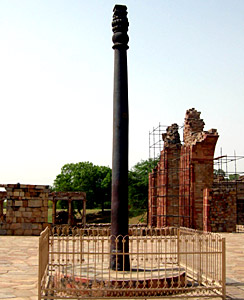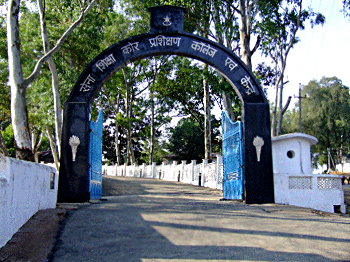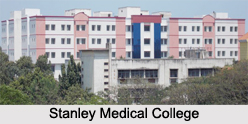 Stanley Medical College (SMC) is located in the Indian state of Tamil Nadu. More specifically, this college is situated in Chennai (Madras). Globally, this college can be pinpointed at coordinates 13.106225 degrees north and 80.286745 degrees east. It is defined as a government medical college and hospital. It is affiliated to the Tamil Nadu Dr. M.G.R. Medical University. The campus of this college is considered to be urban. This college also has a nickname, Stanleans. In the India Today 2014 survey, this medical college was given 22nd position. It is considered to be one of the oldest centers in India in the field of medical education and is also known to be developed into an Institute of International standard of doctors. In July 1988, this college celebrated its Golden Jubilee. During its 75th year, the Platinum Jubilee celebrations were also being organized.
Stanley Medical College (SMC) is located in the Indian state of Tamil Nadu. More specifically, this college is situated in Chennai (Madras). Globally, this college can be pinpointed at coordinates 13.106225 degrees north and 80.286745 degrees east. It is defined as a government medical college and hospital. It is affiliated to the Tamil Nadu Dr. M.G.R. Medical University. The campus of this college is considered to be urban. This college also has a nickname, Stanleans. In the India Today 2014 survey, this medical college was given 22nd position. It is considered to be one of the oldest centers in India in the field of medical education and is also known to be developed into an Institute of International standard of doctors. In July 1988, this college celebrated its Golden Jubilee. During its 75th year, the Platinum Jubilee celebrations were also being organized.
History of Stanley Medical College
The history of Stanley Medical College traces the setting of former institutions, which eventually gave birth to this college. This college was initially a hospital which was more than 200 years old. The Monegar Choultry was established in 1782 which was replaced by the Stanley Hospital. In 1799, the Madras Native Infirmary was established with Monegar Choultry and leper asylum, for providing medical services. In 1830, this Infirmary was extended by philanthropist, Raja Sir Ramasamy Mudaliar. More specifically, a hospital and a dispensary were added to the Infirmary. In 1836, the Madras University started running M.B. & G.M. and L.M & S Medical Courses in the Infirmary. In 1903, a hospital assistant course became the extension of the courses of the Infirmary, under the initiative of the British East India Company. The Institute of Social Paediatrics took birth in 1990. It was originally a centre for children and aimed at improving research programmes. This institute has several departments of the hospital (example- nephrology, dermatology and neurology). It functions to provide treatment to adult patients from Stanley. In 1911, the first graduating class received their Licensed Medical Practitioner (LMP) diplomas. Lt. Colonel Sir George Fredrick Stanley, a British parliamentarian is credited with the inauguration of a five-year D.M. and S (Diploma in Medicine and Surgery) Course in 1933. On 2nd July, 1938, the school was upgraded as a medical college and MBBS course was introduced with 39 students. Dr. T.S. Rajan, the then Health Minister of Madras province inaugurated this college and named the Stanley Medical College. In 1964, Dr. Sarvepalli Radhakrishnan, the President of India, laid the foundation stone for College Auditorium to mark the Silver Jubilee Celebration.
Admission in Stanley Medical College
In Stanley Medical College students are admitted to Bachelor of Medicine and Surgery (MBBS) and post-graduate (MD, MS and other diplomas and higher specialties) courses via state and national entrance examinations. More specifically, 85% of the seats are filled with students entering via state examinations while 15% of the seats are filled with students entering via national examinations. It is important to note that only Indian citizens are allowed to receive education in this college. Its admission process is highly competitive. It is again especially important for the students to note that a weighted aggregate of the entrance exam and high-school final exam scores determines one"s admission to the MBBS program statewide (about 250 seats per year). As per estimations, about 1 in 40 applicants are then admitted to this statewide MBBS program (about 1500 seats in 5 medical colleges). Therefore, only the top-rankers eligible for this MBBS program receive entrance in Stanley Medical College. This process thus reduces the effective admission rate to less than 1 in 200. Reservation of seats is prevalent in Stanley Medical College. More specifically, several seats are reserved for physicians in government service in post-graduate courses. Seats are also reserved for underserved communities, along with reduced tuition.
Courses Offered in Stanley Medical College
Stanley Medical College offers an undergraduate Bachelor of Medicine and Surgery (MBBS) degree. This degree is considered to be a basic medical degree in India or the first professional degree. It is a five-and-a-half years course, with 4.5 years course work followed by one year of compulsory rotational internship. This college also offers Masters degree namely, Doctor of Medicine (M.D.) and Masters in Surgery (M.S.). They comprise of a three-year residency. The post graduate diploma programs of this college consist of a two-year clinical residency.
Training in Stanley Medical College
Higher specialty fellowship training programs are offered to students to enrich their educational and professional qualification. For practical training and scientific study, corpses are available to the hospital`s anatomy department from the Monegar Choultry, the ascendant of the hospital.
Associations of Stanley Medical College
The Stanley Medical College is associated with the Government Stanley Hospital. This hospital has near about 1280 beds for the purpose of in-patient treatment. Each day this hospital records an attendance of near about 5000 out-patient. It is known that near about 40 surgeries can be performed in the 8-storey surgical complex of this hospital, simultaneously. The three departments of the Stanley Medical Hospitals are Surgical Gastroenterology, Urology and the Institute of Hand Rehabilitation and Plastic Surgery. Other hospitals attached to this college are the Government Stanley Hospital, Government Raja Sir Ramasamy Mudaliar Lying-in Hospital, Government Hospital for Thoracic Medicine and Government Peripheral Hospital. All these hospitals are situated in Chennai.
Divisions of Stanley Medical College
Stanley Medical College and the hospital also have a Centre of Excellence for Hand and Reconstructive Microsurgery and a separate cadaver maintenance unit. This centre is considered to be the first such centre in the country.
Development of Stanley Medical College
On August 2011, a new hostel behind the pediatric block campus for male students was inaugurated. It occupied an area of about 1 acre and could accommodate 500 students. On 2nd February 2013, a new women"s hostel campus was inaugurated by the honorable Chief Minister of Tamil Nadu. This hostel is located on the opposite side of the existing women"s hostel. It has a separate block for 300 UG (Under Graduate) students and another block for 150 PG (Post Graduate) students. A new multi storey building with seven floors in the hospital campus is to be inaugurated in near future. It is a replacement structure built in place of old buildings, which have cardew ward, pentland ward, bryson ward, bannerman ward and old plastic surgery building. Also, the existing silver jubilee auditorium in the college campus is to be renovated soon.
Notable Faculty and Alumni of Stanley Medical College
Some of the notable faculty and alumni of the Stanley Medical College are Mirudhubashini Govindarajan (Infertility Expert), Lakshmanan Sathyavagiswaran (Chief Medical Examiner-Coroner for the County of Los Angeles), Vilayanur S. Ramachandran (Neurologist and Cognitive Science researcher), N. Mathrubootham (Psychiatrist), Sondur Sriniwasachar (Professor of Bio-chemistry at Karnataka Institute of Medical Sciences), Govindappa Venkataswamy (founder of Aravind Eye Hospitals), Vinu Alexander (medical humanitarian and senior faculty at JPS Family Medicine Residency), Dr. Prathap C. Reddy (founder of Apollo Hospitals), Ramaswami Venkataswami (founder of IRRH & DPS, Hand Rehabilitation / Plastic Surgery) and Mohammed Rela (liver transplant surgeon at the King`s College Hospital).
Related Articles:
Medical Colleges in India
Medical colleges of Tamil Nadu
Medical colleges of Karnataka
Medical colleges of Kerala
Medical colleges of Bihar
Medical colleges of Delhi
Medical colleges of Assam
